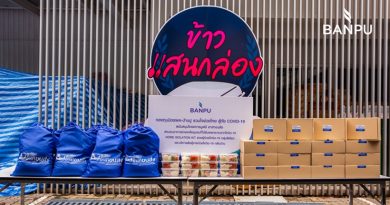Retirement Visa Rules and Requirements For 2022
With the severity of the pandemic seemingly on the decline in most parts of the world, it comes as no surprise that the desire to travel is picking up. Whether it is for business or pleasure, many people are looking into getting back on the road to visit various destinations.
Thailand has for the longest time been a top tourist destination on the Asia continent. The kingdom is famous for its cultural attractions, warm climate, friendly people, natural wonders, and much more. While it had closed its borders for some time in 2020 to stop the spread of the virus, it has since reopened and been welcoming travellers from all over the world.
The government has been altering the visa rules and requirements over this period in response to changing circumstances. Some changes have also applied to the retirement or non-immigrant O-long stay visa. This is a specially designated visa for foreigners looking to spend their retirement years in Thailand. Here are the currently applicable rules and requirements for this retirement visa.
Retirement Visa
The retirement visa may be applied for from within the kingdom or your home country through the local Thai consulate or embassy. When you apply for it while in Thailand, it is known as the non-immigrant O-long stay visa. If you apply for it while in your home country, it is called the non-immigrant OA-long stay visa.
This visa is valid for one year and may be renewed on an annual basis. You can apply for renewal as many times as you continue to be qualified for it. There are no limits on renewals. You can apply for a single entry visa or a multiple entry visa. A multiple entry visa is preferable if you intend to keep travelling in and out of the country.
Requirements for the Retirement Visa
Anyone applying for this visa must have attained the age of 50 or be older. You must also be a national or permanent resident of the country of application.
The person should also meet the financial criteria which are:
- To have at least THB 800,000 in a Thai bank account in their name and with the funds having been cleared for at least 2 months before making the application.
- To have a monthly income or pension of THB 65,000 at minimum.
- To have a combined saving in the account, pension or income that totals no less than THB 800,000.
To prove that you meet this financial threshold, the applicant should provide a passbook or bank book from a recognized Thai bank in their name. The bank should also provide a letter confirming that the monies deposited came from an overseas source and have been cleared for at least 2 months before the date of the application.
Other documentation includes:
- Completed application form
- Two passport-sized photos
- Valid passport with at least one year remaining before the date of expiration
- Health insurance
- Visa application fee
In some cases, the Thai immigration official may request additional documentation including a police clearance certificate and a medical certificate.
Health Insurance
This requirement is a recent addition prompted by a growing amount of debt left by foreign travellers at Thai medical facilities. The health insurance coverage requirement ensures that foreigners can foot their medical bills without distress. The government now requires those travelling on retirement visas to have:
- Outpatient cover of THB 40,000 at minimum
- Inpatient cover of THB 400,000 at minimum
This cover may be taken from an accredited insurer, be it local or from overseas, as long as their coverage will cater to your needs while in Thailand. The government however recommends choosing a policy that accommodates upfront payment rather than reimbursement.
Travellers are also expected to provide evidence of Covid-19 insurance. This rider should confirm that you are covered for an amount of no less than USD$20,000 in medical expenses related to Covid-19 for the duration of your stay.
Visa Renewal
The retirement visa is a renewable visa. It is valid for just one year, meaning you must renew before this time is up. You are required to submit the same documentation as when you applied the first instance. This includes an updated passbook or bank book and a letter from the bank confirming funds have been cleared in your account.
How to Apply
As said, you can apply for this visa from your home country or while in Thailand. Ensure that you provide all the documentation listed alongside your completed application form.
If applying while in Thailand, you will have had to travel on another visa. This should be the 90-day non-immigrant visa. Ensure that you present your application during the last 30 days of this visa to immigration. You must have been in Thailand for at least 60 days prior. Also, include proof of residence with your application. This can be done using either a utility bill in your name or a rental agreement.
If applying from your home country, then submit the completed application form with the required documents to the local Thai embassy or consulate. Note that not all Thai embassies or consulates are qualified to accept these applications, so check ahead of time.
Additional Info
If you plan to travel in and out of the kingdom while on a single-entry retirement visa, remember that you will need a re-entry permit. This document will allow you to pass through customs safely. Leaving before you obtain it can cause your visa to be cancelled when trying re-entry.
The retirement visa has a 90-day reporting obligation. This means that holders must report on their current address to immigration every 90 days. This can be done in person at the office, via mail or using an agent that you have granted power of attorney on the matter.
Keep in mind that the rules and requirements for Thai visas can often change. If you are looking to retire to Thailand in 2022 you need to keep abreast of these issues and ensure you can comply before committing yourself. If you find it challenging, consider engaging a professional agency that will guide you through the process and will improve your chances of securing approval for your visa on the first try.



